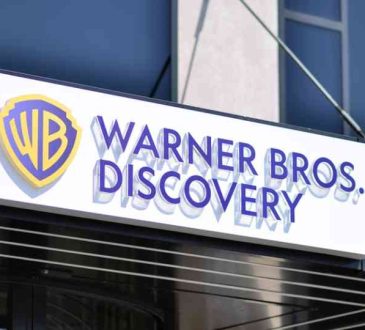Facebook Shows Everyone How Not to Manage a Company

Facebook hasn’t exactly had the best 2018 so far. As a direct result of the Cambridge Analytica scandal, the Silicon Valley giant’s share price, which had been stagnating for months, fell off a cliff. Since then, the bad press hasn’t eased up, as the inner workings of the company were revealed in a leaked memo late last month.
The memo gives a rare insight into how Facebook manages its employees and what values the company believes in, and it’s not pretty. The memo, written by top Facebook executive Andrew Bosworth, triumphed growth above all else — even if that means “maybe someone dies.”
Company values are important, but they shouldn’t be puzzles
After the memo was leaked in full by BuzzFeed, Bosworth took to Twitter to explain himself by saying that “I didn’t agree with it even when I wrote it”. He defended this confused position by saying that the intent of the post wasn’t to convince people but to start a discussion about how to make Facebook’s software better.
There are only two reasons for this complex series of statements. The first is that Bosworth is lying to protect himself from the backlash created by the post and the second is that he is intent really was to start a debate. Either way, it’s hard to imagine how any of this would have helped to motivate or inspire employees.
It’s important for a company to have values, and this is evidently what Bosworth was getting at with his memo. However, if anyone expects employees to actually follow those values and live by them, those values need to be clear. Company values which are expressed as a series of riddles for employees to figure out help no-one.
Aggressive performance management is not the same as effective performance management
Bosworth and his allies have defended his memo as an example of his bluntness. After all, the truth hurts, right? Sometimes, you have to be cruel, mean, and aggressive to get to the heart of things.
This logic is misguided. There’s nothing practical or pragmatic to take away from Bosworth’s memo. There’s no actionable advice here. Instead, employees are left with a vague feeling that Facebook values noise and fury.
All that said, Bosworth’s memo is couched in something important. Annual appraisals don’t work, yet many businesses continue to use appraisals as performance management. The idea of a yearly review as the only time that managers and employees have a meaningful conversation is outdated.
As such, regular performance updates about where the employee’s career — and the company in general — is going are a much better alternative to annual appraisals. In Bosworth’s memo, we see an attempt at this kind of continuous performance management. He is trying to engage with his employees and set them goals for the future in a manner beyond the outdated appraisal.
The issue is how badly he does it. Memos have their uses as part of an overall continuous performance management cycle, but the memos need to have some kind of measurable and achievable goal. What’s more, they need to be combined with regular face-to-face discussions about performance.
By contrast, Bosworth’s memo is a somewhat of a rant. He’s admitted that he didn’t believe a word of it, so its only goal seems to have been to create a reaction. Yet, shock for the sake of shock achieves nothing that can be measured and gives employees reason to do something worse than be appalled or offended by the memo — ignore it completely.
Not all growth is justified
No business person really wants to grow their business at all costs. If they did, it would mean committing crimes, forgoing sleep, and ignoring friends and family. That’s what “at all costs” means. Equally, not all growth is justified. It doesn’t matter how good your product or service is; there are lines in the sand that employees need to know about.
In his memo, Bosworth disagrees.
“That’s why all the work we do in growth is justified. All the questionable contact importing practices. All the subtle language that helps people stay searchable by friends. All of the work we do to bring more communication in. The work we will likely have to do in China some day. All of it.”
Telling your employees that anything they do in the name of growth is justified sets a dangerous precedent. More than that, it suggests that short-term growth is more important than the employees themselves.
With the average cost-per-hire in the United States at $4,000, it’s not just waxing lyrical to see that your employees are your most important asset. Employees cost a lot of money, and they do so for good reason. A business without people in it is not a business at all.
It’s for this reason that entrepreneur Richard Branson has often said that he values employees over customers. While it’s okay to disagree with this line of thinking, it’s important to recognise the power each potential employee has. Big sales are important, but a company can’t grow without great people to make those big sales.
Add CEOWORLD magazine to your Google News feed.
Follow CEOWORLD magazine headlines on: Google News, LinkedIn, Twitter, and Facebook.
This report/news/ranking/statistics has been prepared only for general guidance on matters of interest and does not constitute professional advice. You should not act upon the information contained in this publication without obtaining specific professional advice. No representation or warranty (express or implied) is given as to the accuracy or completeness of the information contained in this publication, and, to the extent permitted by law, CEOWORLD magazine does not accept or assume any liability, responsibility or duty of care for any consequences of you or anyone else acting, or refraining to act, in reliance on the information contained in this publication or for any decision based on it.
Copyright 2024 The CEOWORLD magazine. All rights reserved. This material (and any extract from it) must not be copied, redistributed or placed on any website, without CEOWORLD magazine' prior written consent. For media queries, please contact: info@ceoworld.biz
SUBSCRIBE NEWSLETTER








